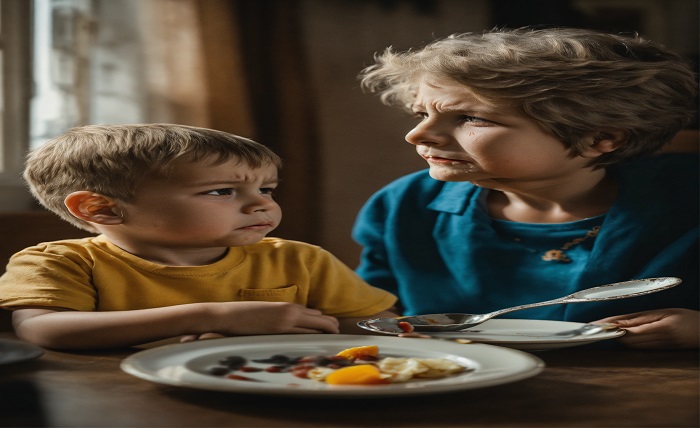What are the most important prevention tips that you need to know about diarrhoea in children?

Diarrhoea is one of the most common health issues among children across the world, and it is usually characterised by very frequent and loose stools, which can range from mild and short-lived to severe and life-threatening conditions. In the developing countries, diarrhoea is one of the major causes of child mortality, but even in the urban areas, it can disrupt the growth, comfort and overall well-being of the kids. Fortunately, diarrhoea can be very easily prevented with proper hygiene, nutrition, and care practices as recommended by the top pediatrician in vijayawada.
Practical tips that you need to know for preventing diarrhoea:
- Promoting proper hand washing habits: One of the effective ways of preventing diarrhoea is through maintaining proper hand hygiene. Germs will be spreading very quickly when children or caregivers do not wash their hands after using the toilet, changing diapers or handling food. Teaching the kids to wash their hands thoroughly with soap and clean water before eating and after playing is very much recommended so that there will be no spreading of germs. Supervising younger kids to make sure that they are following the fun routine is always very important, so that the development of the habit will be done early.
- Ensuring safe drinking water: Contamination of water is another leading cause of diarrhoea in children, and families should always focus on using clean, filtered and boiled water for drinking, cooking and preparing formula milk. If you were using bottled water, then you need to make sure that it is always from a trusted source. Storing the water in clean and covered containers will also be helpful in preventing contamination. In the areas where water supply is unreliable, parents can use chlorine tablets and water purifiers so that safety will never be compromised.
- Maintaining good food hygiene: Food-related infections are one of the important triggers of diarrhoea, and parents should always focus on washing the fruits and vegetables before consumption. Avoiding raw and street food will also be very much recommended, so that you can depend upon hygienically prepared options and keeping the raw and cooked food separate to prevent cross-contamination is also very much recommended. Consuming the leftover food promptly to prevent bacterial growth is also recommended for parents, and encouraging the children to eat freshly prepared meals will always be very important, so that the risk of food-related illness will be minimised.
- Encouraging breastfeeding in infants: Exclusive breastfeeding for the first six months of life will reduce the risk of diarrhoea because breast milk contains antibodies which will help protect the community and improve protection against infections. After introducing solid foods, continued breastfeeding up to 3 years is very much recommended so that additional protection and nutritional support will be there without any problem.
- Promoting vaccination: Certain vaccinations will also play a very important role in preventing severe cases of diarrhoea because such vaccinations will be helpful in promoting overall good health by reducing hospitalisation and complications. So, remaining up to date in the immunisation schedule of the children will be very important so that overall immunity will be strengthened and children will be protected from infections, which could trigger diarrhoea.
- Maintaining a clean environment: Children will usually be playing on the floor and outdoors, which is the main reason that best child specialist in Vijayawada always recommends that parents focus on maintaining a clean environment so that the risk of infection can be easily eliminated. Regularly cleaning the floors and play areas will be recommended, and further, you need to make sure that the toilets are always hygienic and well-maintained. Additionally, going for proper disposal of the waste and diapers will be recommended so that there is no chance of any kind of contamination at any point in time.
- Encouraging a nutritious diet in children: A very strong immune system in children will always allow them to fight infections in a better way, and providing the children with a balanced diet that is rich in fruits, vegetables, and whole grains will be important to ensure proper nutrition. Probiotic-rich food items like yoghurt will also be helpful in supporting the gut bacteria by reducing the susceptibility to diarrhoea. Malnourished children will always be at a very high risk of prolonged and severe cases of diarrhoea, which is the main reason that proper nutrition is very much recommended to be followed as a preventive measure.
- Teaching safe and secure toilet habits to kids: The older children should always be guided about the use of the toilet, including flushing and washing their hands afterwards and keeping the toilets very clean. For the young ones who are still in diapers, caregivers must always focus on developing the responsibility of disposing of the soiled diaper properly and sanitising their hands after immediately changing the diaper.
- Remaining careful during travelling: At the time of travelling, specifically to the areas which have poor sanitation, parents should always focus on taking some extra precautions. Using bottled water, avoiding the use of raw foods and taking safe snacks for children with them is always very important to avoid any issue. Additionally, packing the travel hygiene kit with sanitiser, wipes, and ORS is always very important so that even if diarrhoea happens, you will be able to manage it perfectly.
- Monitoring and responding quickly to the symptoms: Even with prevention in some of the cases, the symptoms might prevail, which is the main reason that consulting the pediatric gastro doctor as soon as possible will be recommended for parents, so that everyone will be able to manage the complications with professional support without any problem.
Conclusion: Preventing diarrhoea in children is totally possible through consistent efforts in hygiene, nutrition and safe practices. So, by focusing on the above-mentioned preventive measures seriously, families will not only be able to protect children from discomfort and danger but also will be able to promote a happy and healthy childhood.
